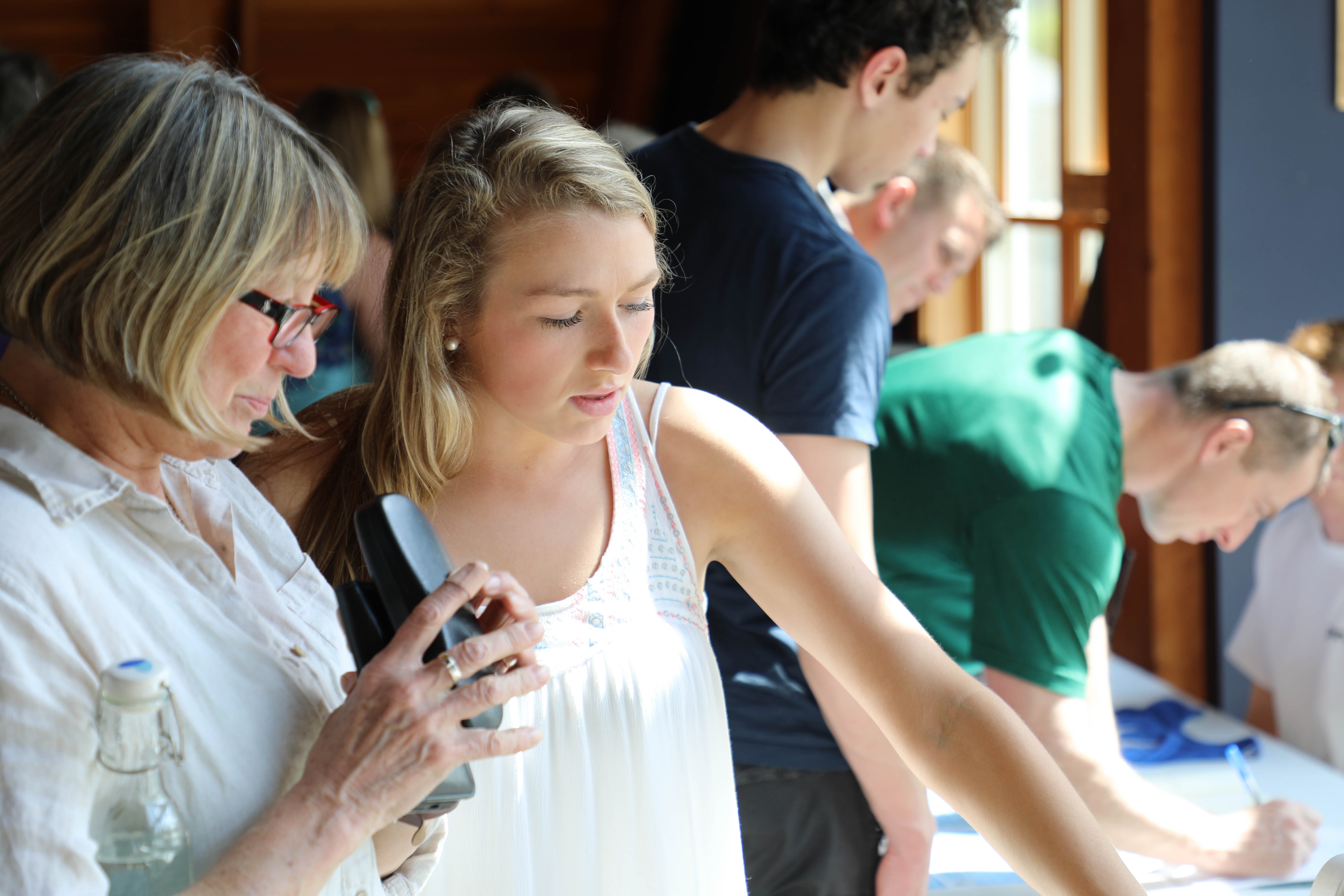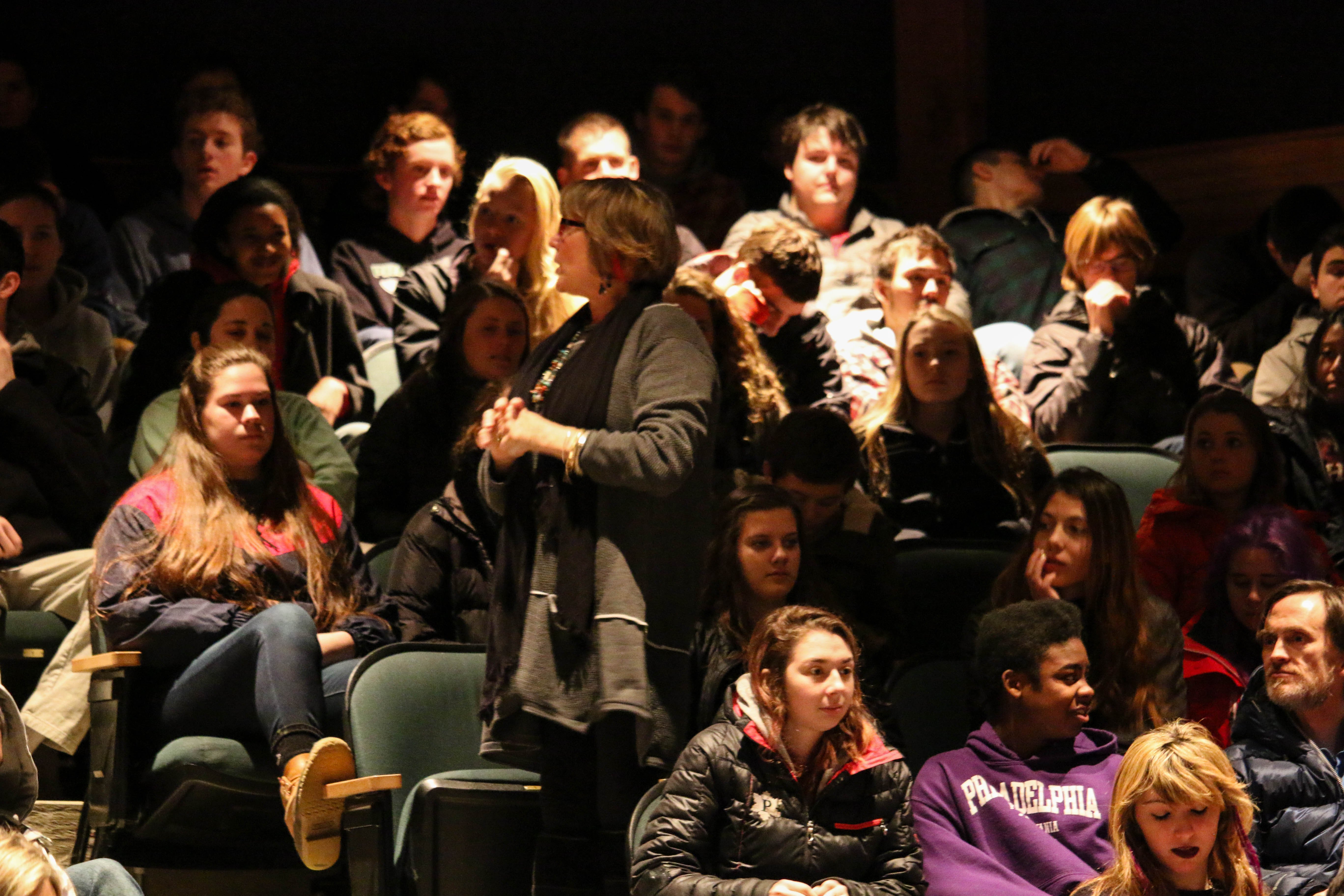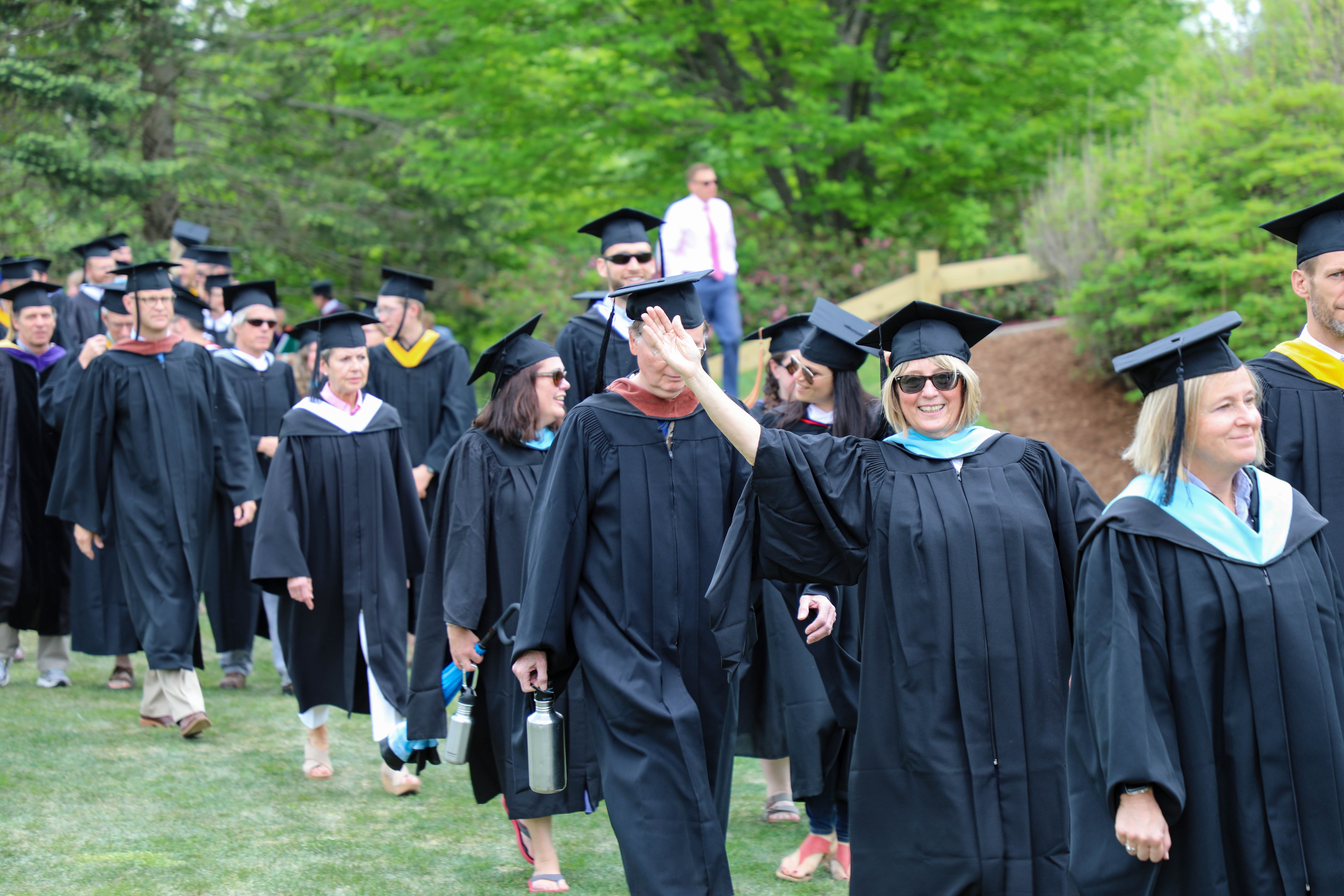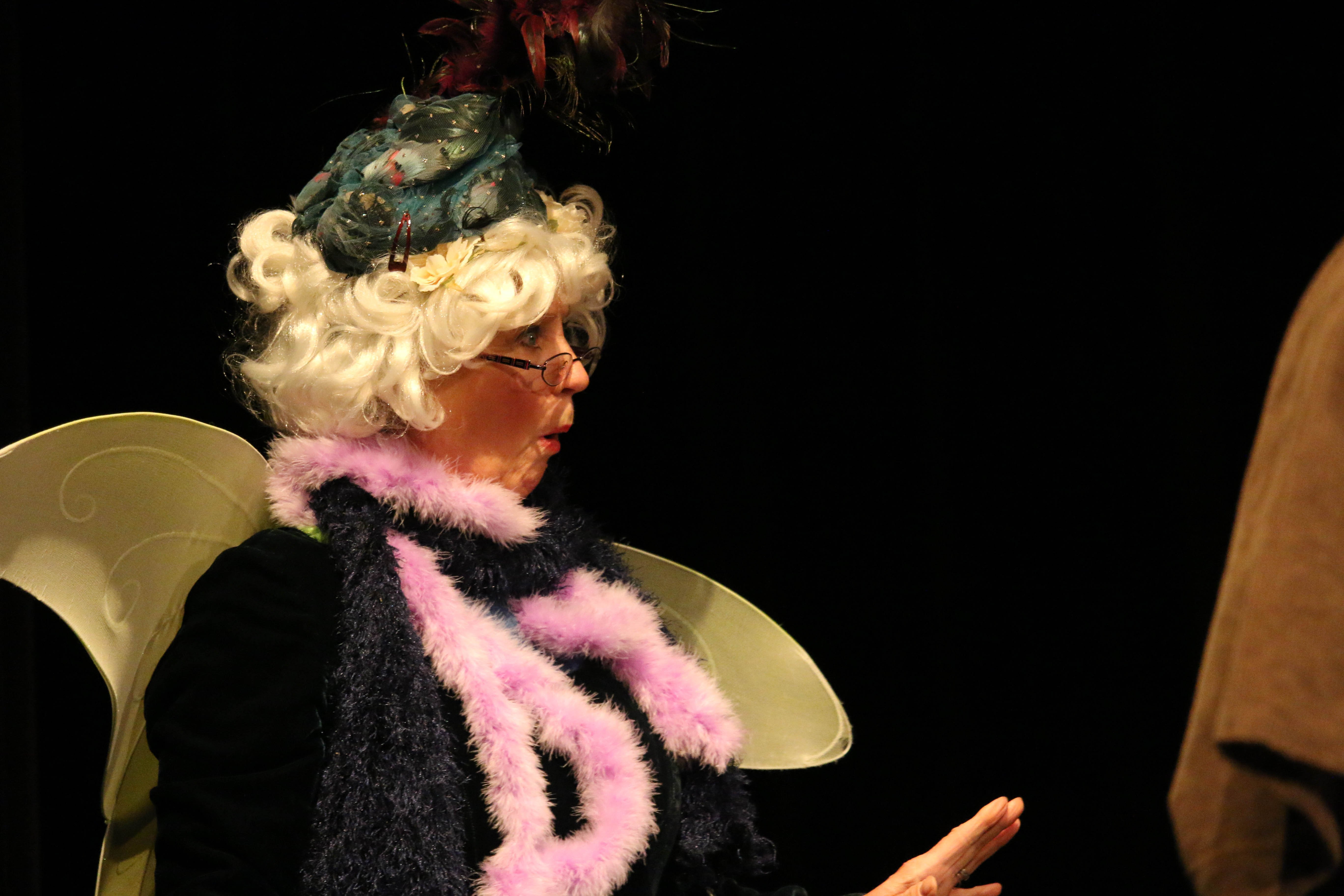Throughout the month of March, we will profile different female faculty and staff members in celebration of Women's History month. Thank you to faculty member Kelly Griffin-Brown for spearheading this project. Check out our first profile on faculty member Terry Stoecker below.

How did you find your way to Proctor Academy?
My husband, Michael Littman, and I had only recently moved from Manhattan to Lincoln, NH for work in theatre. It was late 1990. A former colleague from NYU and Worcester Children's Theatre recommended Michael and I as consultants on a self generated, original theatre piece to be created at Proctor. This was the kind of work that Michael and I had been doing for years in both NYC and Boston. We worked on the production with members of the Diversity Group along with members of the Art Department and a group of fabulous Proctor students! The result was an original multi-media theatre piece called Heartbeat with original songs, scenes, and movement collaboratively created by the cast. We started in November of 1990 and produced the show in the spring of 1991.
Following that project, I was hired as director of the spring production, and in the school year of 1992-1993 I was hired as director of drama and contracted as director and tech director for the fall play and the spring musical and providing support in the winter term for the student directed winter play. I temporarily left Proctor in the spring of 1996 for Illinois, where Michael was getting his MFA in directing. That was not the best fit for me and I was so blessed to be offered my job back again in 1997! I came home to Proctor as quickly as I could and went back to working in the theatre, being involved in the development of eco dorm, and working as the chair of the fine arts department. Since stepping foot on campus I was overwhelmed with a feeling in my heart and soul of belonging to this remarkable school that had amazing programs offering students so many varied opportunities for self-direction and independent academic studies. I loved the feel of Proctor and I really adored the other faculty I met and mostly, those fantastic students.

What advice do you have for your female colleagues on finding their voice?
Slowing down to discover within what is important and true comes to mind immediately. Trusting the process of living and learning, knowing that the only constant is change. Patrice Martin, one of my most cherished mentors, at Proctor taught me, through her quiet strength, to be still and to not be afraid to wait and to not push the river. These words live in my heart and direct me moment to moment: "Create your own reality." "Get the ego out of the work." And then "get the ego out of the art." This offers us a sense of allowing life to happen and to be aware of how we navigate.
Bert Hinkley, former Proctor Native American teacher, Social Science teacher, and longtime coach, often shared these words with me, "Show up---be present to what is happening. Be aware--of everything--inside of you and around you. Speak only the truth. Be open to outcome." We each have a choice in the moment of response, and that is what I want our students to know and to be and to do; to know that they have a moment to choose in all things. Life moves so swiftly, and we are all in a constant state of response. Under this pressure, I want us to love the seeds of our creativity, agency, choice. Choose love.
What is it like being a female voice and advocate to the women of Proctor?
When I got to Proctor there were lots of women in leadership roles, department heads--Math, English, Social Science, World Language, Art, Learning Skills, and administrators-- Dean of Students and Assistant Dean of Students, Dean of Academics, --all strong women with strong voices. Soon science was added to that lis of having a woman department head. They were my mentors. They asked the hard questions when it came to size of school, curriculum development, program development, development dollars raised, discipline, dorm life, student life, schedule, budget, etc. There was a distinct feeling of equanimity and balance. The school also had a sense of participatory democracy. It was messy and sometimes really cumbersome and very sticky in processing certain difficult situations, and there was a feeling that we were all in it together. I think because the school was smaller in size, and less complicated, the leadership was able to be more horizontal, and we did much of our work with a deep sense of togetherness. All hands on deck.
Being a woman's voice and an advocate for women in our community often makes me feel vulnerable. I have to think very carefully and try to speak very mindfully when I do speak. However, I look out over our amazing women faculty members and I see so many strong women who hold agency over themselves and their particular places on the circle of who we are: you, Kelly, Fiona Mills, Jen Fletcher, Patty Pond, Lindsay Brown, Melanie Maness, Maggie Kennedy, Erica Wheeler, Annie Mackenzie, Kristen Nesbitt, Heidi Johnson, Shauna Turnbull, Jill Grotnes, Megan Hardie, Karin Clough, Amy Makechnie, Sue Houston, Jen Fleming, Jen Summers, Sarah McIntyre, so many strong women who want to be of service in helping to raise good human beings. Proctor is filled with amazing women!!

What do you love best about your job?
Kids!!!! Watching a student grow and develop over the course of a full four years, a term, a week, a day, a class, a moment. That is the best--to be a part of the growth of a person as they unfold into their own truth of being. This is what keeps me excited about being at Proctor after all these years. That was true in 1990 and remains so today. I learn so much every day from the students I have the honor to work with. Second is love. We don't say that it is one of our core values, but it is at the very heart of Proctor. So many of our students come to us as wounded learners. Our combined efforts and collaborative work is to love them and to help them return to the natural love of self that will help them to develop confidence and autonomy, and to become leaders of their own lives. Watching a student move from fear or unsureness to courage and confidence is the best. Being a simple shepherd on that journey is the greatest gift and honor.
How would you describe your time working in the wellness programs?
It has been awesome. As any program evolves over the decades, there are naturally ups and downs. Right now, wellness is in a major growth spurt. When I worked in theatre, wellness was a huge part of the theatre curriculum in that to be a good actor, you need to take really good care of your instrument--heart, mind, body, and soul. It, to me as a once theatre practitioner, is the only way to bring truth to the imaginary circumstances that make theatre the powerful vehicle it can be. This goes right back to Aristotle's Poetics. Theatre as an agent of change, as cathartic. That change can be for the audience and it can be for the actor, too. Learning to make important choices for self and for character, learning to focus despite all distractions, learning how to use personal energy - this is all about wellness and for me has been a part of my being and my teaching for decades.
When Megan Hardie and I started up the GROWTH (Gaining Recognition Of Wellness Through Humanities) program for ninth graders in the early 2000s, we were really onto something. This program gave us wide berth to use all kinds of resources and people to help us educate ninth graders about how to be and stay healthy and focused, how to help themselves become who they are meant to be, how to ride the waves of stress and the demands of being at school. We incorporated art, film, writing, guests, and discussion to deliver the important parts of wellness. Then GROWTH grew from one term into two terms of wellness using arts and humanities and one term of Intro to Art. This was a powerful model, and while we no longer are able to sustain this model, I think the current model of Freshman Seminar is very good.
In regard to Sophomore Seminar, I am still thinking and processing how to make that program better and more effective from a purely teaching and learning perspective. The Wellness Space, the container, for the classes going forward will certainly influence the intentions of Soph Sem and in turn the outcome. I am encouraged that the wellness space will invite more ways for students and faculty to create their own personal wellness missions.

How have you seen the role of women evolve during your time at Proctor?
The strong women of Proctor are in the classrooms, in the dorms, in athletics, advising and doing the hard work of growing young adults. We have always been there and I am certain that we will continue to be there. There might still be a bit of an imbalance of equality in the male to female ratio. How does equality present itself at Proctor in regard to men and women, age, experience, leadership, etc? We represent for our students a model of the greater world from the trustees to the student body and everyone in between. It is important for our collective being to be a mindful representation of the world as it is and the world as we want to create it.








